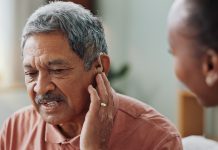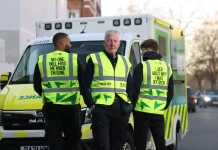Lakshmi Mahadevan from Texas A&M AgriLife Extension Service describes the increasing need for Mental Health First Aid in rural areas
Many individuals in rural America need mental health or substance use treatment. However, only a fraction seek and receive appropriate treatment promptly. Reasons for not seeking treatment mainly include stigma which, in turn, contribute to the increased morbidity and mortality associated with mental illness.
Further, the COVID-19 pandemic has wrought an increase in mental health concerns compounded by trauma, direct or indirect physical health crises and continuing lack of access to appropriate care.
In this article, Dr Lakshmi Mahadevan describes how Mental Health First Aid training provided to rural Texans allows for a peer-to-peer conversational approach that is trauma-informed, prevents potential crises and leads to timely help-seeking behaviours among a population that was thus far underserved.
Challenges to mental healthcare
According to the National Association Rural Health Association, mental health services in rural areas are particularly challenged by the Four A’s:
Accessibility – Need to travel long distances because local providers may be less likely to recognise and treat mental health concerns.
Availability – According to the Health Resources Services Administration, as of February 2022, there are 6,127 Mental Health Professional Shortage Areas in the United States, of which 4,159 are designated in rural and partially rural areas.
Affordability – Most residents of rural counties may lack insurance and out-of-pocket resources to pay for mental healthcare.
Acceptability – Rural residents may feel the lack of confidentiality in a close-knit community and thus be more susceptible to the stigma associated with expressing their mental health concerns and the need for treatment or care.
Mental Health First Aid in rural Texas
Beginning March 2020, Texas A&M AgriLife Extension Service (AgriLife Extension) launched the “Reducing Opioid Use and Misuse through Mental Health First Aid in Rural Texas” (MHFA_RTX) project funded through a Rural Health and Safety Education grant awarded by the United States Department of Agriculture (USDA). MHFA_RTX seeks to help combat the 4 A’s that cause rural disparities by utilising a multi-level intervention that includes:
- Raising awareness of opioid use and misuse and related at-risk behaviours in rural Texas Counties,
- Increasing mental health literacy of adults who interact with adults through Mental Health First Aid (MHFA) training,
- Providing harm reduction strategies and education in the form of opioid overdose reversal administration kits,
- Educating communities on how to develop broad-based community coalitions to address the complex community-specific nature of rural opioid use.
MHFA_RTX teaches people to identify and address a potential mental illness, challenges, or substance use disorder among fellow rural citizens by implementing ALGEE safely and responsibly.
- Assess for risk of suicide or harm.
- Listen non-judgmentally.
- Give reassurance and information.
- Encourage appropriate professional help.
- Encourage self-help and other support strategies.
MHFA as a resource for TIC in rural Texas
Given that MHFA is an evidence-based training course that takes the fear and hesitation out of starting conversations about mental health and substance use problems, we also postulate that Mental Health First Aid is a trauma-informed approach. Morgan, Thomas, and Brossoie (2020) proposed that trauma-informed care (TIC) may align well with and help close the gaps created by the four A’s in rural areas. TIC is an evidence-based environment of care approach initiated by the Substance Abuse and Mental Health Services Administration (SAMHSA). SAHMSA designates that a trauma-informed programme, organisation or system realises the widespread impact of trauma and understands potential paths for recovery; recognises the signs and symptoms of trauma in clients, families, staff, and others involved with the system; responds by fully integrating knowledge about trauma into policies, procedures, and practices; and seeks to actively resist re-traumatisation.
Specifically, Mental Health First Aiders bring TIC to their rural peers by:
- Recognising that trauma can lead to mental health challenges and potential crises brought on by substance use or suicidal thoughts and behaviours.
- Understanding that trauma lies in the eyes of the beholder and that the cause should not impact the way MHFA is delivered and the individual’s immediate needs are met.
- Preventing re-traumatisation through non-judgmental listening and not compelling the recounting of the event.
- Considering the rural culture and the potential stigma associated with seeking help for mental health challenges resulting from trauma.
- Being aware that ALGEE is non-linear, non-intrusive and only encourages professional help-seeking if signs and symptoms persist beyond four weeks.
Mental Health First Aid for Adults, thus, recognises the widespread impact of trauma on small-knit communities within rural settings; is aware of the four R’s and attempts to offset the challenges by providing “hope with facts”; actively resists re-traumatising and responds by fully integrating knowledge about trauma into ALGEE.
As of February 2022, MHFA_RTX grant has trained 215 Texans who either reside or serve in rural areas to be Mental Health First Aiders. A majority of participants (93%) have gained the knowledge that it is best not to make a person talk right after a traumatic experience. Participant Testimonial:
“I think it is helpful (taught me) to see how to react and how not to react when helping someone through a mental health issue or substance issue.”
Conclusion
The COVID pandemic has brought an increase in mental health concerns compounded by a continuing lack of access to trauma-informed care that is best aligned with rural needs. The USDA funded, “Reducing Opioid Use and Misuse through Mental Health First Aid in Rural Texas” grant is a trauma-informed approach by ensuring everyone has access to a Mental Health First Aider who is non-judgmental and will actively resist re-traumatisation. By helping to offset the negative impacts of lack of access to trauma-informed systems of care, MHFA_RTX is providing a pathway to prevention, timely intervention and recovery from trauma that was hitherto unavailable to rural Texans.
*Please note: This is a commercial profile











